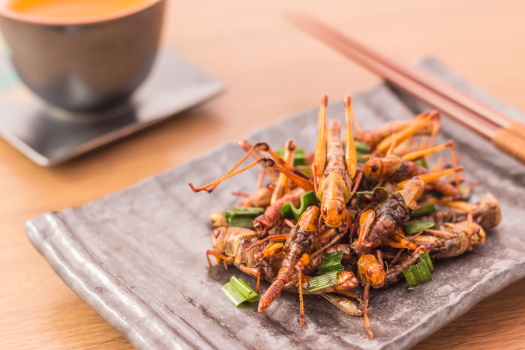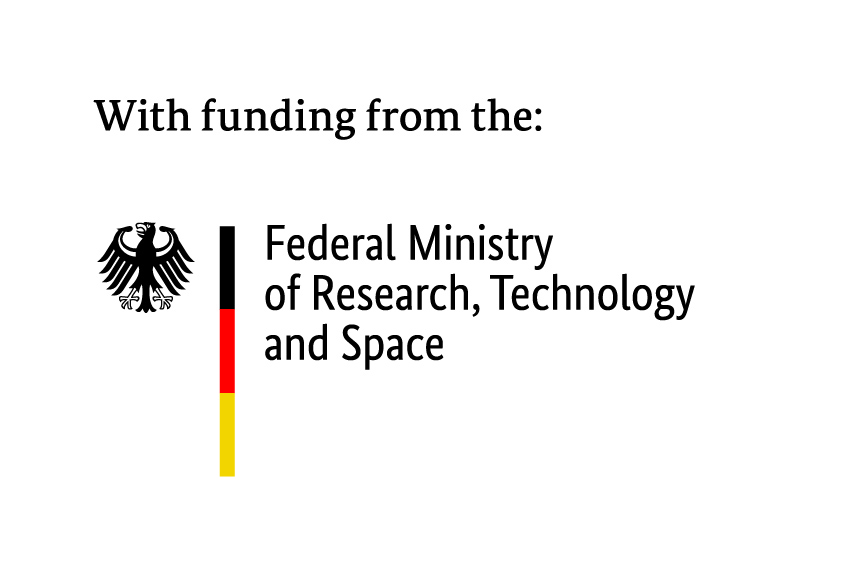Insects for food production


As the global population continues to grow, new strategies will be required in order to make more efficient use of limited resources such as water, energy and farmland, and ensure that food can be produced in a sustainable manner.
One possible approach is to use edible insects. In comparison with conventional livestock, insects offer greater efficiency when it comes to converting organic substrates into valuable protein biomasses for use as food. Although using insects as a source of protein is gaining more and more attention, the high costs of industrial insect breeding are still a limiting factor for many companies.
Using agricultural byproducts for insect breeding
Using agricultural byproducts and side streams from the food industry as feed for insect breeding could help to reduce production costs. Byproducts such as pomace from fruit and vegetable processing, cacao fruit remnants or press cakes from palm oil production, for example, are available in large quantities and uniform quality. They can, however, contain various indigestible components — for example, lignin or polyphenols - which need to be reduced to some extent before use.
Indonesia: partner country for insect breeding
Thanks to its high biodiversity with regard to edible insects, a long tradition of insect consumption and a warm and humid climate resulting in favorable growing conditions, Indonesia is the perfect partner country for this project. Up to now, only a few insect species have been used for industrial insect production — the larvae of the black soldier fly, for example. Many other endemic insect species that are used for food production currently come from small local producers’ wild collections where the breeding conditions are not controlled.
Using insects to secure a sustainable global supply of protein
The main aim of the Entomo-Value research project is to obtain valuable protein biomasses for use as food by using bioconversion of agricultural byproducts to breed edible insects (e.g., larvae of the silkworm, red palm weevil or yellow mealworm as well as grasshoppers/locusts). The project is testing the use of functional proteins obtained in this way in the production of food items such as baked goods, meat alternatives, snack products and pasta. The collaboration between Indonesian and German partners will make it possible to achieve great strides by combining advanced knowledge and technologies regarding local agricultural byproducts, breeding and analysis of promising insects, processing of protein ingredients and the development of appealing foods.
Entomo-Value is helping to increase the availability of a sustainable global protein supply while reducing losses throughout the food production value chain.
Project term: |
2022 to 2025 |
Project management/ funding: |
Forschungszentrum Jülich, Federal ministry of education and research within the framework of the BMBF funding initiative Bioeconomy International 2020 |
Project partners: |
|
 Fraunhofer Institute for Process Engineering and Packaging IVV
Fraunhofer Institute for Process Engineering and Packaging IVV